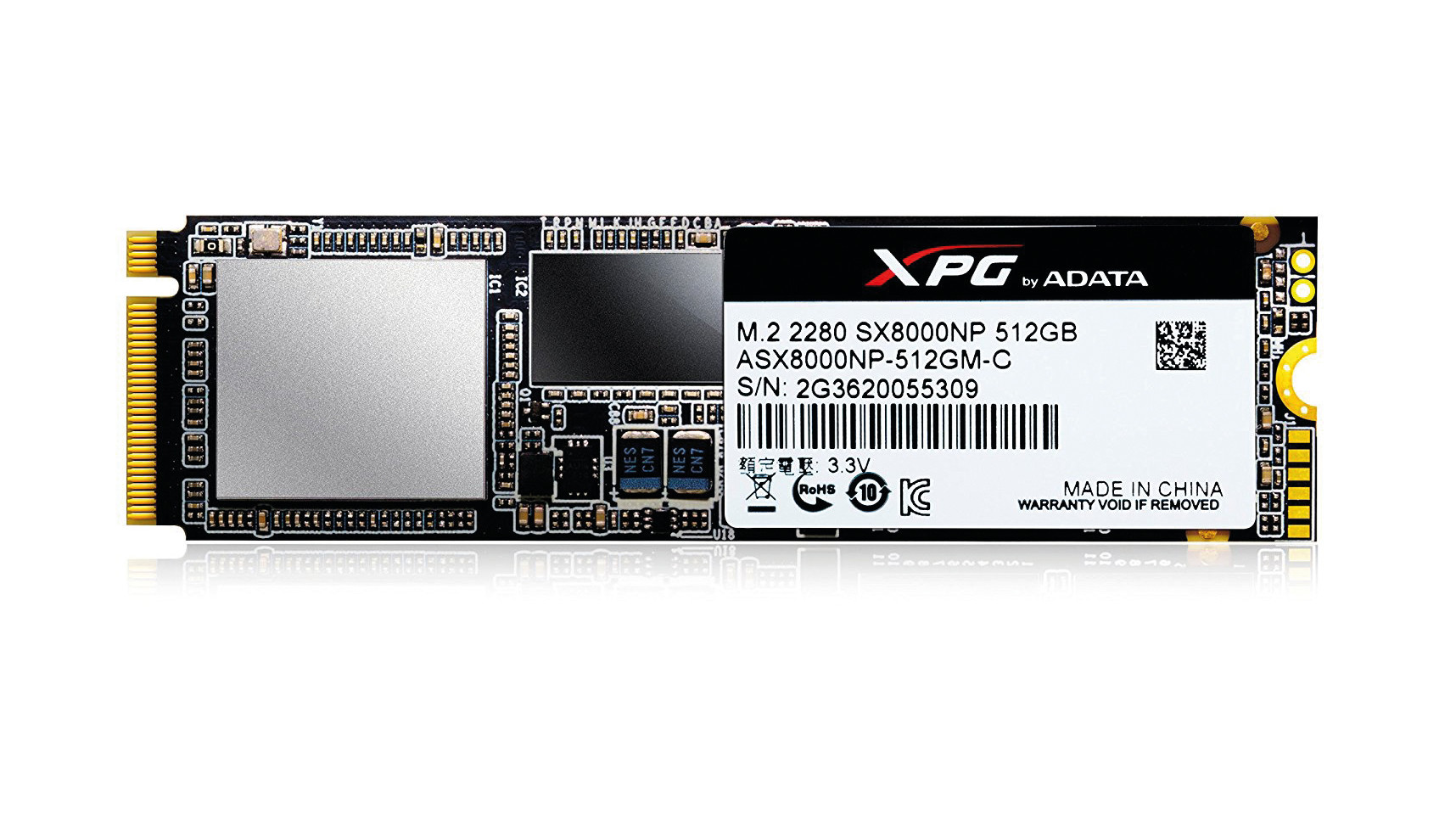Adata XPG SX8000 512GB review
A speedy and reliable NVMe drive

It's not the cheapest or fastest drive on the market, but the Adata XPG SX8000 is a reliable drive that's suitable for most use-cases.
-
+
Strong reliability guarantees; Fast read/write speeds
-
-
No built-in encryption

The XPG SX8000 is Adata's top-of-the-range M.2 SSD, and it exploits the NVMe interface to deliver speeds far in excess of anything attainable over a SATA connector. It's still far from the fastest drive we've tested however: rival drives can be up to 70% faster when it comes to sequential reads, and around 80% faster at sequential writes. Even some mid-range competitors comfortably outpaced the XPG in our tests.
Still, in real-world usage the XPG SX8000 feels perfectly snappy. That may be partly down to its hybrid buffer, which uses DRAM for short-term caching but can also address MLC cells in simulated SLC mode for faster access. With such trickery under its hood, the XPG SX8000 bested most other drives we've tested in the multi-threaded read test.
The drive also impressed us in PCMark 8's storage tests: these exercises aren't always very revealing, as they (accurately) reflect the fact that drive speed has a limited impact on real-world application performance. Even so, it's notable that the XPG SX8000 came near the top of the list. It completed the 'Heavy Photoshop' benchmark in 353 seconds.
There's no need for spacers or brackets with an M.2 drive, so you don't get any goodies in the box aside from the unit itself. There's no hardware encryption on offer either, but - as with Adata's other drives - your purchase does entitle you to download Acronis True Image HD 2015, to help move an existing system onto your new drive.
The XPG SX8000's strong suit is stamina. The 512GB capacity model is rated for 320TBW, with a mean time to failure of two million hours; in both cases that's better than rivals like the Samsung 960 Evo, which promises 200TBW and a lifetime of 1.5 million hours. The drive also comes with a five-year warranty, versus the Evo's three - although of course this only covers the physical disk, not the data on it.
Overall, we're inclined to prefer the Evo - for just 15 more it delivers significantly better sequential performance, not to mention built-in encryption. But the Adata XPG SX8000 is a solid drive that's well worth considering, especially if you're looking for heavy-duty reliability.
This review originally appeared in PC Pro issue 275
Verdict
It's not the cheapest or fastest drive on the market, but the Adata XPG SX8000 is a reliable drive that's suitable for most use-cases.
Get the ITPro daily newsletter
Sign up today and you will receive a free copy of our Future Focus 2025 report - the leading guidance on AI, cybersecurity and other IT challenges as per 700+ senior executives
Darien began his IT career in the 1990s as a systems engineer, later becoming an IT project manager. His formative experiences included upgrading a major multinational from token-ring networking to Ethernet, and migrating a travelling sales force from Windows 3.1 to Windows 95.
He subsequently spent some years acting as a one-man IT department for a small publishing company, before moving into journalism himself. He is now a regular contributor to IT Pro, specialising in networking and security, and serves as associate editor of PC Pro magazine with particular responsibility for business reviews and features.
You can email Darien at darien@pcpro.co.uk, or follow him on Twitter at @dariengs.
-
 Westcon-Comstor and Vectra AI launch brace of new channel initiatives
Westcon-Comstor and Vectra AI launch brace of new channel initiativesNews Westcon-Comstor and Vectra AI have announced the launch of two new channel growth initiatives focused on the managed security service provider (MSSP) space and AWS Marketplace.
By Daniel Todd Published
-
 Third time lucky? Microsoft finally begins roll-out of controversial Recall feature
Third time lucky? Microsoft finally begins roll-out of controversial Recall featureNews The Windows Recall feature has been plagued by setbacks and backlash from security professionals
By Emma Woollacott Published
-
 The UK government wants quantum technology out of the lab and in the hands of enterprises
The UK government wants quantum technology out of the lab and in the hands of enterprisesNews The UK government has unveiled plans to invest £121 million in quantum computing projects in an effort to drive real-world applications and adoption rates.
By Emma Woollacott Published